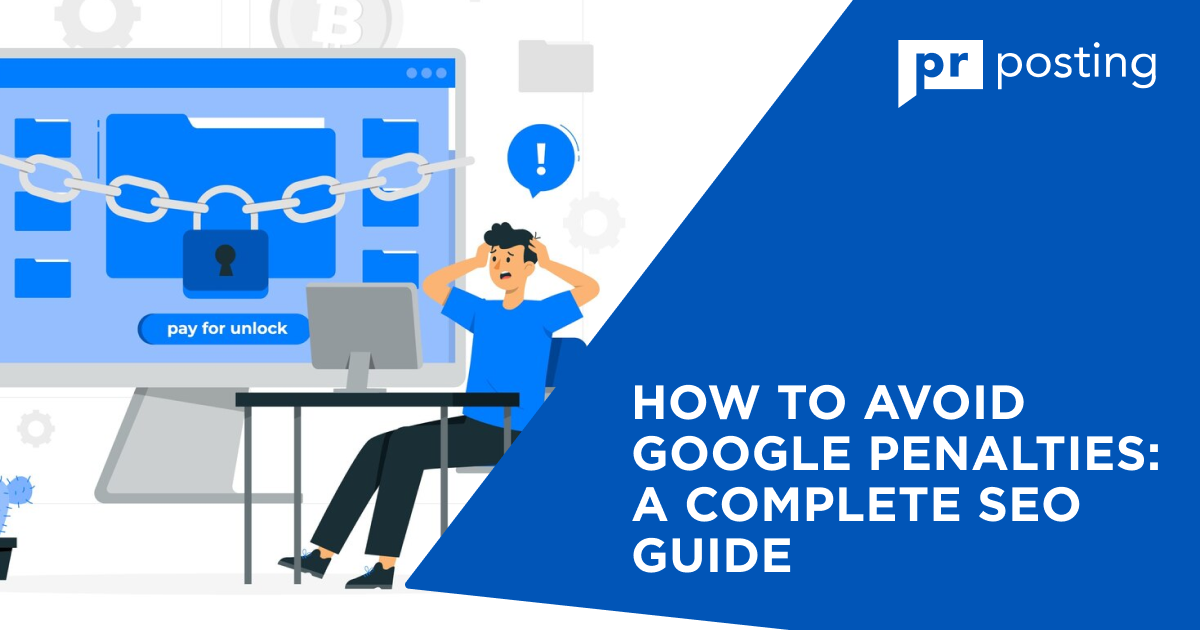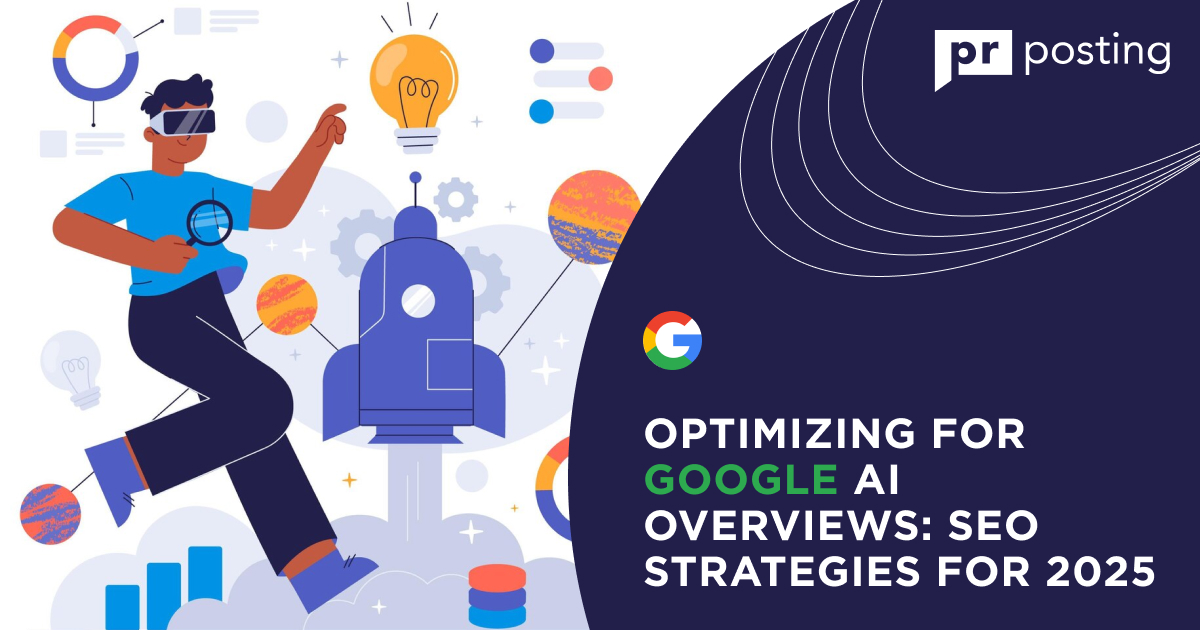AI-Powered Search Engines: What SEOs Need to Know in 2025

SEOs must adapt. Understanding Google AI Overviews, Perplexity search engine, and Arc Search will help professionals stay ahead. This article covers how these systems work, how they differ from older search models, and how AI-generated results impact user behavior.
Understanding AI-Powered Search Engines
What Are AI Search Engines?
AI search engines use machine learning to analyze queries, extract relevant data, and generate responses. Unlike traditional search engines, which rely on indexed web pages, AI-driven systems:
- Summarize information from multiple sources.
- Generate direct answers instead of showing only links.
- Adjust results based on real-time updates.
Differences Between Traditional and AI-Enhanced Search
Traditional search engines rank pages based on content relevance and authority. AI-powered search engines process queries differently:
- Data Interpretation. AI models analyze intent, context, and past interactions.
- Response Generation. Instead of ranking links, AI can generate text-based answers.
- Real-Time Adaptation. AI-powered results update dynamically, reducing reliance on static rankings.
How AI-Generated Results Are Changing User Search Behavior
Users interact with search engines differently as AI systems improve.
Some key shifts include:
- Fewer Clicks. AI-generated summaries reduce the need for users to visit websites.
- More Conversational Queries. Users phrase questions naturally, expecting direct responses.
- Increased Trust in AI Answers. Many users treat AI-generated summaries as authoritative.
Major Players in AI Search in 2025
Google AI Overviews
These summaries appear at the top of search results, providing a quick response based on multiple sources.
Pros:
- Blend traditional search with AI-generated content.
- Work with Gemini chatbot for extended queries.
- Allow users to bypass AI summaries and access sources.
Cons:
- No follow-up question feature.
- Some AI responses have been inaccurate.
How to Rank in Google AI Overviews
- Provide concise, well-structured content.
- Use factual, verifiable sources.
- Optimise for high-authority backlinks.
How to Turn Off Google AI Overviews
- Google does not currently offer an official switch.
- Users can bypass AI results by scrolling through them.
Perplexity: A Research-Focused AI Search Engine
Features of Perplexity Search Engine
- Uses AI-powered search engines to deliver in-depth responses.
- Can generate synthetic images to support research.
- Perplexity Pro scans and analyzes local documents for insights.
- Provides a conversational search style for detailed exploration.
What is Perplexity AI?
This AI-driven tool combines traditional search with conversational interactions.
Features:
- Supports AI-generated text and synthetic images.
- The pro version (Perplexity Pro) scans local documents for relevant insights.
- Provides source links alongside AI responses.
Why SEOs Should Watch Perplexity
- AI citations make it a reliable research tool.
- Helps users explore information without opening multiple web pages.
- Can process documents directly from a user’s device.
Who Should Use Perplexity AI?
- Researchers looking for deeper answers beyond standard search engines.
- Users who need AI-generated images as part of their findings.
- Professionals who want AI-driven document analysis on Perplexity Pro.
Google AI Overviews and Perplexity AI bring new tools for search. Each has advantages and drawbacks depending on the user’s needs.
Arc Search: A Mobile-First AI Search Tool
What is Arc Search Engine?
Arc Search automates browsing by summarizing multiple web pages into a single document. It is a mobile-first tool that automates online searches. Users save time by getting structured answers without clicking multiple links. It is built for convenience but has limitations.
Benefits of Arc Search
- Automates searches and organises data efficiently.
- Works best for mobile users who need quick summaries.
- Reduces manual research time.
- Provides detailed topic overviews.
- Combines information from different sources into one report.
Drawbacks of Arc Search
- Only available for iPhones and iPads.
- Requires the Arc browser, limiting accessibility.
- Responds slower than some other AI-powered search engines.
Other AI Search Engines
- Microsoft Bing. Uses AI-generated summaries but struggles with accuracy.
- Open AI Search Engine. A developing tool with potential but limited access.
- You.com. Offers research-based responses but lacks real-time updates.
Key Takeaways for SEOs
- AI-powered search engines prioritize summaries over links.
- Google AI Overviews, Perplexity, and Arc Search each have unique ranking factors.
- SEO strategies must adapt to new AI-driven search behaviours.
Staying ahead in 2025 means optimizing for AI. The right approach will ensure visibility in this changing search landscape.
Google AI Overviews: Pros and Cons
Strengths of Google AI Overviews
- Blends AI-generated summaries with standard search results.
- Works with the Gemini chatbot for additional research support.
- Displays AI results only for fact-verified topics.
- Helps users quickly understand key points before exploring deeper.
Weaknesses of Google AI Overviews
- Users cannot ask follow-up questions for more details.
- Sometimes pulls data from weak sources, leading to misinformation.
- Does not always show AI results for trending topics.
AI Search Engines and Their Limitations
New search platforms compete in the AI space. Some prioritize privacy, while others focus on accuracy. Each has benefits and weak points.
Brave Search
- Prioritizes privacy by blocking tracking scripts.
- Struggles with keeping data fresh.
- Has low popularity in the category of artificial intelligence-based search engines.
Microsoft Bing
- Includes Google AI Overviews but often delivers unreliable summaries.
- Cluttered with pop-ups, affecting user experience.
- Still improves search ranking quality.
Search GPT (OpenAI)
- Still in beta testing with limited public access.
- Could become a major player in AI-powered search engines.
- Needs more development before competing with established platforms.
You.com
- Shifted from a perplexity search engine model to an AI assistant.
- No longer indexes data for real-time searches.
- Lacks freshness in results compared to competitors.
How to Choose the Right AI Search Engine
Users should compare features before switching to AI-powered search engines. Different platforms serve different needs.
- For privacy concerns: Brave Search is a solid option.
- For a mobile-first experience: Arc Search provides the best interface.
- For deep AI summaries: Microsoft Bing offers detailed overviews.
- For potential future advantages: Search GPT may lead to innovation.
- For AI-driven assistance: You.com works best as an assistant, not a search tool.
What Are Google AI Overviews?
These summaries combine AI-generated answers with traditional searches. Understanding how to rank in Google AI Overviews is key for businesses. AI search engines will continue evolving, making searches more efficient and requiring users to stay informed.
The Future of AI Search and SEO Challenges
The rise of AI-powered search engines is reshaping digital visibility. Traditional ranking methods are losing ground. AI-driven results pull answers from multiple sources, often reducing website traffic. This shift raises concerns for content creators and businesses.
Generative AI disrupts search rankings by prioritizing direct answers over clickable links. Websites that rely on search traffic may struggle to maintain visibility.
Key Challenges for SEO in 2025
- Traffic Reduction. AI responses replace organic search clicks.
- Content Ownership. AI pulls from websites without direct attribution.
- Ranking Uncertainty. Traditional SEO methods may lose effectiveness.
- Changing Algorithms. AI models update frequently, shifting ranking factors.
Businesses must adapt to stay competitive. Understanding top AI SEO tools will be essential.
SEO Strategies for AI Search in 2025
Marketers need new tactics for AI-powered search engines. Optimizing content for AI-generated results requires fresh strategies.
Using OpenAI’s Deep Research for SEO
AI-based search tools analyse vast amounts of data. Businesses can use AI insights to refine content strategies.
Competitive Analysis and SERP Research
- Real-Time Competitor Research
- AI tools track competitors’ content performance instantly.
- Companies can adjust strategies based on live data.
- Identifying Content Gaps
- AI models reveal weak areas in current content.
- Businesses can create missing pieces to gain an edge.
Using top AI SEO tools helps refine content for AI-driven search engines.
Content Creation and Topic Research
Finding the right topics is critical. AI can assist in identifying search trends.
Using AI to Discover Trending and Evergreen Topics
- AI analyses search behaviour to predict content demand.
- Tools like the Perplexity search engine suggest high-interest topics.
- AI models highlight long-term content opportunities.
Writers can refine topics based on AI recommendations. This ensures that content remains relevant and searchable.
Concerns in AI Search
AI extracts information without always crediting sources. This impacts original creators.
Issues with AI Sourcing Content
- AI models scrape data without proper attribution.
- Publishers receive less traffic and fewer backlinks.
- Monetization strategies must shift to compensate.
Businesses should monitor Google AI Overviews to track how AI presents their content.
Adapting to AI-Driven Search
The search industry is shifting. Businesses must adjust strategies to remain visible.
How to Rank in Google AI Overviews
- Structure content for AI readability.
- Use precise, factual information.
- Optimize for AI-generated snippets.
- Monitor AI search updates regularly.
AI-powered search tools are reshaping digital marketing. Marketers must stay informed and adjust accordingly.
Enhancing E-E-A-T and Link Building
Search engines value content backed by strong expertise. AI tools help identify credible sources. Writers can use AI-driven research to refine claims and cite experts.
Ways to Improve E-E-A-T
- Find authoritative sources using AI-powered research tools.
- Cite industry experts to boost trust.
- Use structured data to highlight credentials.
- Strengthen content credibility with verified references.
Automating SEO Research Tasks
AI speeds up SEO work. It extracts insights and refines strategies with real-time data.
AI-Assisted Content Briefs
- Summarizes research for writers.
- Highlights key terms for optimization.
- Suggests subtopics based on trends.
Automated SERP Analysis
- Tracks ranking shifts instantly.
- Identifies competitor strategies.
- Recommends content updates for relevance.
The Role of Schema in AI Search
AI-powered search engines still value structured data. The schema helps AI understand website content better.
Schema Types That Boost Visibility
- Article schema. Enhances blog posts.
- FAQ schema. Highlights answers in search results.
- Product schema. Improves e-commerce visibility.
- Author schema. Shows credibility and expertise.
AI-Powered Content Strategy for SEO Success
AI tools refine content planning. They analyze search trends and audience behaviour.
Data-Driven Content Planning
- Uses AI to find trending topics.
- Group related articles into content clusters.
- Creates a calendar based on search interest.
AI-powered search engines demand precise SEO strategies. AI enhances research, link building, and content structure. A balanced mix of automation and expert input ensures long-term search visibility.
Automating Repetitive SEO Tasks with AI
AI-powered search engines now handle many SEO tasks with speed and accuracy. Automation saves time and reduces manual work. AI tools scan websites, track rankings, and suggest improvements.
Key Automated SEO Processes
- Site audits. AI finds errors in structure, speed, and mobile usability.
- Rank tracking. AI updates keyword positions in real time.
- Backlink analysis. AI identifies strong and weak inbound links.
- Internal linking. AI suggests better link placement for ranking growth.
Choosing the Right AI SEO Tools
Selecting the right tool affects efficiency. Top AI SEO tools offer smart automation, deep research, and easy integration.
Essential Features
- Natural Language Processing (NLP). Helps AI understand search queries.
- AI-driven keyword research. Identifies high-ranking keywords quickly.
- Competitor analysis. Highlights gaps in content and strategy.
- Technical SEO audits. Pinpoints website issues affecting ranking.
- Seamless integration. Works with existing SEO platforms.
- Continuous updates. Ensures accuracy as search engines evolve.
Conclusion
AI-powered search engines continue to reshape digital marketing. SEO experts must use artificial intelligence to keep up with the times. Tools like the Perplexity search engine and Google AI Overviews refine search strategies.
How to Stay Competitive
- Use top AI SEO tools to improve content quality.
- Leverage AI-driven audits to maintain technical health.
- Track Google AI Overviews to understand ranking shifts.
AI is reshaping SEO. Those who adapt will thrive. The future of search belongs to automation.




